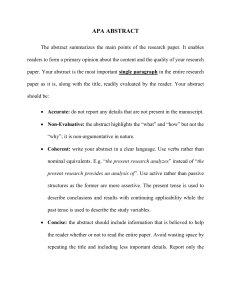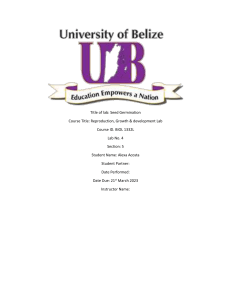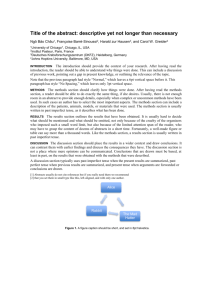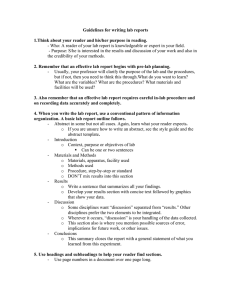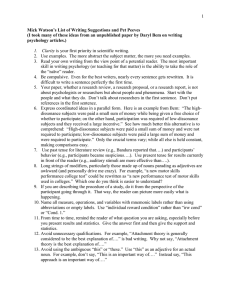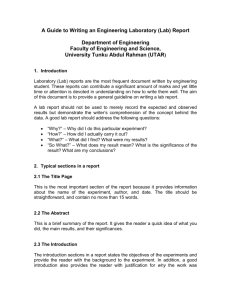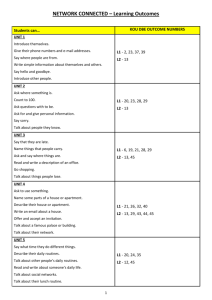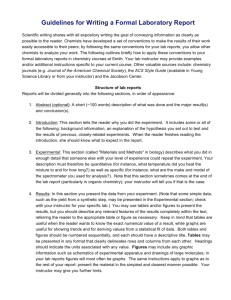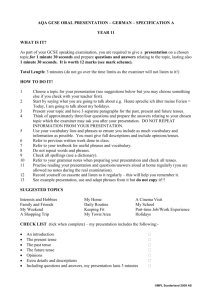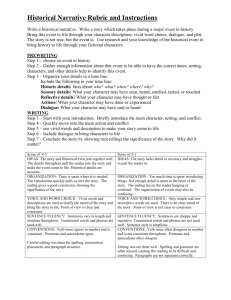How to write an abstract
advertisement
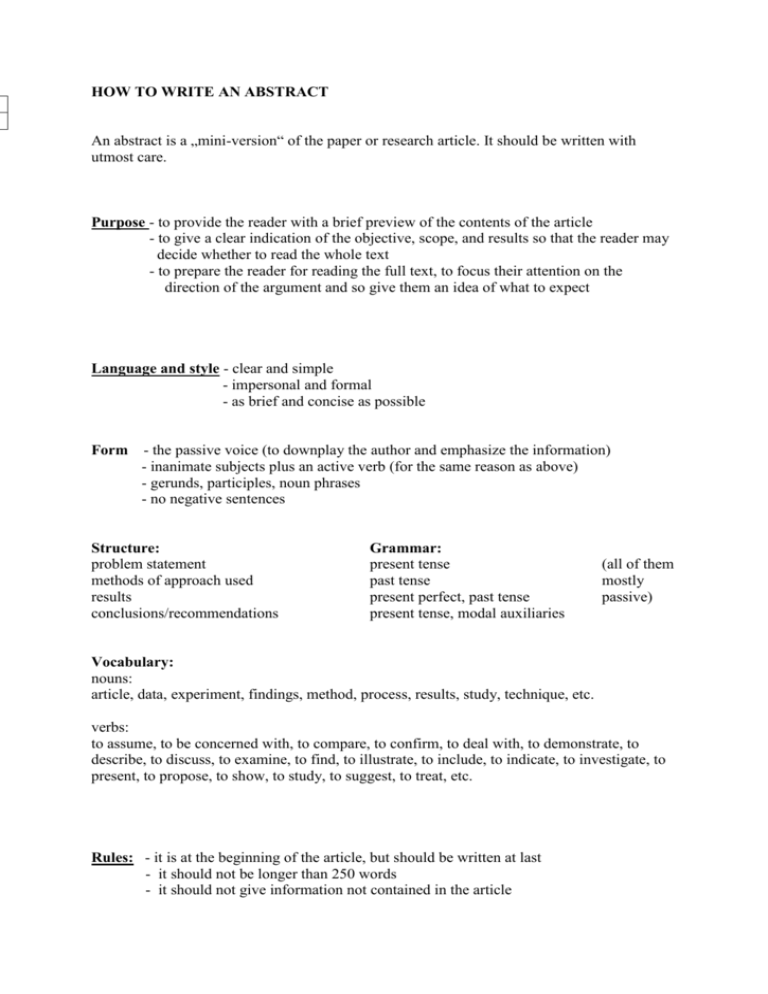
HOW TO WRITE AN ABSTRACT An abstract is a „mini-version“ of the paper or research article. It should be written with utmost care. Purpose - to provide the reader with a brief preview of the contents of the article - to give a clear indication of the objective, scope, and results so that the reader may decide whether to read the whole text - to prepare the reader for reading the full text, to focus their attention on the direction of the argument and so give them an idea of what to expect Language and style - clear and simple - impersonal and formal - as brief and concise as possible Form - the passive voice (to downplay the author and emphasize the information) - inanimate subjects plus an active verb (for the same reason as above) - gerunds, participles, noun phrases - no negative sentences Structure: problem statement methods of approach used results conclusions/recommendations Grammar: present tense past tense present perfect, past tense present tense, modal auxiliaries (all of them mostly passive) Vocabulary: nouns: article, data, experiment, findings, method, process, results, study, technique, etc. verbs: to assume, to be concerned with, to compare, to confirm, to deal with, to demonstrate, to describe, to discuss, to examine, to find, to illustrate, to include, to indicate, to investigate, to present, to propose, to show, to study, to suggest, to treat, etc. Rules: - it is at the beginning of the article, but should be written at last - it should not be longer than 250 words - it should not give information not contained in the article - ideas should be organized well - logical connectors should be used to link the ideas - key words should be included in the abstract (for easy reference) unless they are to be listed below Notes: - do not simply repeat the title of the project in the first sentence of the abstract - do not address the reader (e.g.,“you will see that“) - be careful to use the correct word order, that is, e.g., “something is discussed“ Examples of phrases used: A technique has been developed for ….. Its advantages over existing techniques include ….. This technique may find application in ….. Important improvements have been made in the manufacture of ….. Increased ….. and ….., as well as decreased ….., make this development worthy of fuller testing. Existing markets should benefit from the introduction of ….. Some evidence has been found that ….. The great majority of cases studied showed that ….. The findings suggest that further research into the problem of ….. Control of ….. remains a problem. One possible solution may be to ….. The experiments conducted for measurements of …..are described. The experimental data are compared against the theoretical prediction from ….. In addition, experimental data are used to verify the mathematical model. For more information see: http://leo.stcloudstate.edu/bizwrite/abstracts.html
